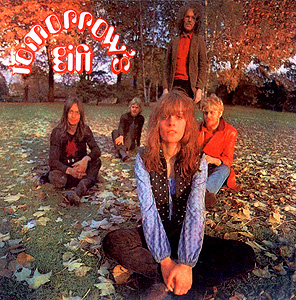|
|
|
01 |
Riddle In A Swamp |
|
|
|
08:04 |
|
|
02 |
Prayin' To Satan |
|
|
|
05:10 |
|
|
03 |
One Of The Narrow Minded Thoughts |
|
|
|
03:29 |
|
|
04 |
Tenakel Gnag |
|
|
|
02:57 |
|
|
05 |
The First Seasons AfterThe Destruction |
|
|
|
13:03 |
|
|
06 |
How You Want To Live |
|
|
|
07:29 |
|
|
07 |
Grey Aurora |
|
|
|
01:52 |
|
|
08 |
Arits |
|
|
|
02:53 |
|
|
09 |
Breeds There A Man |
|
|
|
03:21 |
|
|
10 |
King In A Nook |
|
|
|
04:28 |
|
|
11 |
Sandy Concert |
|
|
|
08:08 |
|
|
12 |
Enough To Write A Song About Or Two |
|
|
|
02:01 |
|
|
13 |
Second Song |
|
|
|
00:27 |
|
|
|
| Studio |
Tonstudio Dierks |
| Country |
Germany |
| Spars |
DDD |
| Sound |
Stereo |
|
|
| Producer |
Jochen Petersen |
| Engineer |
Dieter Dierks |
|
Ellen Meyer - vocals, good humor
Wolfgang Trescher - flute
Carlo Karges - guitars, percussion
Bernd Kiefer - fender bass
Gerd Paetzke - drums
Manfred Rurup - keyboards
Recorded at Tonstudio Dierks, Stommeln and Tonstudio Windrose-Dumont-Time, Hamburg
Recording engineers: Dieter Dierks and Wolfgang Klaus
Produced by Jochen Petersen
TOMORROW'S GIFT
Personnel:
MANFRED RURUP kb
(ELLEN MEYER v) A,B
(CARLO KARGES g, perc) A,B
(WOLFGANG TRESCHER flt) A,B
BERND KIEFER b
(OLAF CASALICH d) A
(GERD PAETZKE d) B
"ZABBA" LINDNER d C,D
ULI TREPTE g D
ALBUMS:
(B)same (2 LP) (Plus 1/2) 1970
(C)"Goodbye Future" (Spiegelei 28515) 1973
NB: 1 was re-released on CD by Second Battle in 1992.
Tomorrow's Gift were responsible for the first release (of only three totally) on the Plus label (owned by Miller International). Like Frumpy and Joy Unlimited, they were a blues and soul-rock band who "turned on, tuned in and dropped out" to the progressive music at the end of the sixties (but remained faithful to their roots). Both mentioned bands had female vocalists, as had Tomorrow's Gift: Ellen Meyer. Arguably she didn't have a voice as strong as lnga Rumpf, but her's was good enough to serve the music. This was really a band of future talents, three of the members being still teenagers. Their eponymous double album had a typical vintage progressive sound. There were powerful long tracks with plenty of guitar, organ, flute and drum solos. Ellen Meyer's vocals were comparable to Janis Joplin. The production (courtesy of Jochen Petersen (Ikarus), possibly his first production ever) was unpolished and some of the material a little rough around the edges. It would have been better to edit the material down to a single album! There is more than an album-worth of live material by Tomorrow's Gift issued on the two festival samplers Pop & Blues Festival '70 and Love and Peace. The first one had a 20 minute version of Donovan's "Season Of The Witch" re-titled "Sound Of Which" (sic!), interspersed with very long, sometimes chaotic instrumental parts. Still it is a good example of their raw live sound. The latter had another 20 minute track: "At The Earth/Indian Rope Man" and the shorter "Begin Of A New Sound". Both concerts were recorded before their debut album.
The five-piece Tomorrow's Gift split up in 1971, but Manfred Rurup and Bernd Kiefer kept the band going. They recruited "Zabba" Lindner from Sphinx Tush and recorded Goodbye Future (1972) as a trio, an ironic title considering the name of the group! This album was technically better, as the engineering and production were handled by Konrad Plank. The sound of Tomorrow's Gift had changed completely and now leaned towards instrumental jazz-rock with forceful keyboard and bass interplay. It was indeed a very varied album: Canterbury-influenced jazz-rock with improvised free jazz parts (a bit comparable to the first Annexus Quam album), general Zappa-esque weirdness and musical jokes. The album wasn't released until a year after the recordings were completed. Then at last Spiegelei/Aamok released it in a funny die-cut round hole cover. In January 1973 they were joined by guitarist Uli Trepte, previously of Guru Guru, with whom they performed live. Half a year later Trepte quit and was replaced with sax and clarinet player Norbert Jacobsen. This new quartet changed their name Release Music Orchestra and recorded five albums for Brain. Original guitarist Carlo Karges later worked with groups as different as Novalis, Extrabreit and Nena. He also guested on the Release Music Orchestra album Get The Ball (1976). Manfred Rurup later recorded with Carsten Bohn's Bandstand, Elephant and lnga Rumpf.
